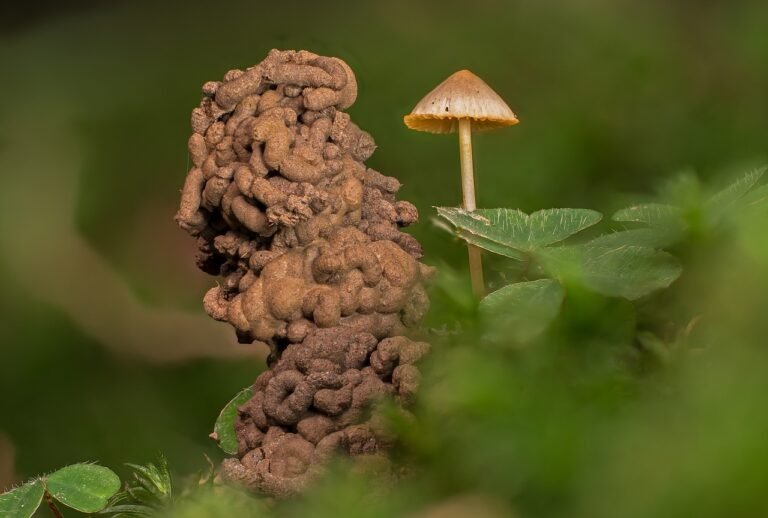
Worm castings, often referred to as “black gold” by gardeners, are one of the most effective organic fertilizers available. These nutrient-rich droppings produced by earthworms provide a wealth of benefits for your garden, enhancing soil health, promoting robust plant growth, and supporting a sustainable gardening ecosystem. Here’s a comprehensive guide for North American readers on the benefits and uses of worm castings as organic fertilizer.
1. What Are Worm Castings?
Definition:
- Worm Castings: Worm castings are the nutrient-rich excrement of earthworms. As worms consume organic matter, they break it down in their digestive system and excrete it in the form of castings.
Nutrient Profile:
- Rich in Nutrients: Worm castings contain a balanced mix of essential nutrients, including nitrogen, phosphorus, potassium, and trace minerals.
- Beneficial Microbes: They are teeming with beneficial microorganisms that help decompose organic matter and enhance soil health.
2. Benefits of Using Worm Castings
Soil Health:
- Improves Soil Structure: Enhances soil texture, aeration, and water retention.
- Increases Microbial Activity: Supports beneficial soil microbes that aid in nutrient cycling and disease suppression.
Plant Growth:
- Nutrient Availability: Provides a slow-release source of nutrients, ensuring a steady supply for plants.
- Boosts Plant Health: Promotes strong root development, vigorous growth, and improved resistance to pests and diseases.
Environmental Impact:
- Sustainable: Reduces the need for chemical fertilizers and supports a more sustainable gardening ecosystem.
- Recycles Organic Waste: Vermicomposting transforms kitchen scraps and other organic materials into valuable fertilizer, reducing landfill waste.
Safe and Non-Toxic:
- Pet and Child-Friendly: Safe for use around pets and children, as it contains no harmful chemicals.
- Gentle on Plants: Unlike some chemical fertilizers, worm castings won’t burn plant roots.
3. How to Make or Source Worm Castings
Vermicomposting at Home:
- Setup: Start a worm bin using a container, bedding material (such as shredded newspaper), and red wiggler worms (Eisenia fetida).
- Feeding: Add kitchen scraps (vegetable peels, fruit scraps, coffee grounds) to the bin. Avoid meat, dairy, and oily foods.
- Maintenance: Keep the bedding moist but not soggy, and ensure adequate aeration by turning the contents occasionally.
- Harvesting: After a few months, the worms will produce castings. Separate the castings from the worms and unprocessed material.
Purchasing Worm Castings:
- Garden Centers: Many garden centers and nurseries sell worm castings.
- Online Suppliers: Various online retailers offer worm castings, often in bulk.
4. How to Use Worm Castings in Your Garden
Soil Amendment:
- Incorporate into Soil: Mix worm castings into the top few inches of garden soil before planting to enrich the soil with nutrients.
- Planting Holes: Add a handful of worm castings to planting holes to give seedlings a nutrient boost.
Top-Dressing:
- Surface Application: Spread a layer of worm castings around the base of established plants. Gently work it into the topsoil and water it in.
Compost Tea:
- Brewing: Create compost tea by steeping worm castings in water (1 cup of castings per gallon of water) for 24-48 hours, stirring occasionally.
- Application: Use the tea to water plants or as a foliar spray to provide a quick nutrient boost and promote healthy growth.
Potting Mix:
- Mixing: Add worm castings to potting soil (about 10-20% by volume) to enhance the nutrient content and improve soil structure for container plants.
Seed Starting:
- Seedling Boost: Incorporate worm castings into seed starting mix to provide young plants with essential nutrients for strong growth.
5. Tips for Using Worm Castings Effectively
Quality Control:
- Fresh Castings: Use fresh, high-quality worm castings for the best results. Avoid castings that are dried out or contaminated.
Balanced Application:
- Moderation: While worm castings are gentle and unlikely to harm plants, using them in moderation ensures balanced nutrient availability.
Combination with Other Practices:
- Integrated Approach: Combine the use of worm castings with other organic gardening practices such as composting, mulching, and crop rotation for optimal soil health and plant growth.
Regular Use:
- Consistent Application: Apply worm castings regularly throughout the growing season to maintain soil fertility and support continuous plant growth.
Worm castings are a powerful and natural way to enhance your garden’s health and productivity. By incorporating this nutrient-rich organic fertilizer into your gardening routine, you can promote robust plant growth, improve soil structure, and support a sustainable ecosystem. Whether you produce your own worm castings through vermicomposting or purchase them from a reliable source, the benefits of using worm castings in your garden are undeniable. Embrace the power of worm castings and watch your garden thrive. Happy gardening!
